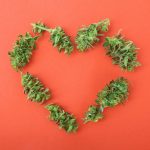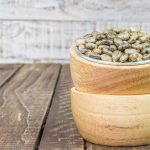Body Adaptations from Short-term Overeating
Node Smith, ND
Overeating has been found to impair blood sugar (glucose) control and insulin levels. A new study suggests that the duration of a bout of overeating can affect how the body adapts glucose and insulin processing when calorie intake increases. The article is published ahead of print in the American Journal of Physiology—Endocrinology and Metabolism.
Obesity and type 2 diabetes increased significantly worldwide in the past 30 years
Obesity and type 2 diabetes have increased significantly worldwide within the past 30 years. Lifestyle factors such as overindulging in high-calorie foods play a large role in the development of these two serious health conditions. Understanding how overeating causes changes in blood sugar control and insulin processing may help scientists learn more about metabolic disease.
How the study was conducted
Researchers from Deakin University in Australia studied a small group of healthy, lean men with an average age of 22. Volunteers participated in a short-term trial consisting of five days “indicative of humans overeating during festivals and holidays” and a long-term model of chronic overeating lasting 28 days. The nutritional composition of the volunteers’ diet was representative of a typical Australian diet (55 percent carbohydrates, 35 percent fat and 15 percent protein). The “overfeeding” portion of the diet included high-calorie snacks such as chocolate, meal replacement drinks and potato chips to add approximately 1,000 more calories to the men’s normal food consumption each day. The research team measured the volunteers’ weight, fat mass, blood sugar and insulin levels before the trial began and again after five and 28 days.
This finding was surprising
Although the amount of visceral fat that surrounds internal organs increased substantially, short-term overeating did not have a significant effect on the men’s weight or fat mass. In addition, fasting levels of blood sugar and C-peptide—an amino acid the body releases in response to increased production of insulin—did not change. This finding was surprising because fasting levels of endogenous glucose—new glucose the body produces in addition to what it has already stored for future use—increased during the short-term trial.
Chronic overeating
Chronic overeating increased the amount of total body fat and visceral fat as well as post-meal blood sugar and C-peptide levels. However, it did not alter fasting blood sugar levels, endogenous glucose production or the rate of glucose removal from the body (glucose disposal). This may be because the nutrient profile in the long-term trial was consistent with a typical diet and dietary fat percentages did not increase. Long-term overindulgence in fatty foods, instead of more nutritionally balanced foods, may be an important factor that causes rapid changes in blood sugar control.
What these findings suggest
These findings “suggest that early adaptations in response to carbohydrate overfeeding are directed at increasing glucose disposal in order to maintain whole-body insulin sensitivity,” the researchers wrote.
 Node Smith, ND, is a naturopathic physician in Humboldt, Saskatchewan and associate editor and continuing education director for NDNR. His mission is serving relationships that support the process of transformation, and that ultimately lead to healthier people, businesses and communities. His primary therapeutic tools include counselling, homeopathy, diet and the use of cold water combined with exercise. Node considers health to be a reflection of the relationships a person or a business has with themselves, with God and with those around them. In order to cure disease and to heal, these relationships must be specifically considered. Node has worked intimately with many groups and organizations within the naturopathic profession, and helped found the non-profit, Association for Naturopathic Revitalization (ANR), which works to promote and facilitate experiential education in vitalism.
Node Smith, ND, is a naturopathic physician in Humboldt, Saskatchewan and associate editor and continuing education director for NDNR. His mission is serving relationships that support the process of transformation, and that ultimately lead to healthier people, businesses and communities. His primary therapeutic tools include counselling, homeopathy, diet and the use of cold water combined with exercise. Node considers health to be a reflection of the relationships a person or a business has with themselves, with God and with those around them. In order to cure disease and to heal, these relationships must be specifically considered. Node has worked intimately with many groups and organizations within the naturopathic profession, and helped found the non-profit, Association for Naturopathic Revitalization (ANR), which works to promote and facilitate experiential education in vitalism.
Node Smith graduated from the National University of Natural Medicine (NUNM) in 2017, and is currently licensed as a naturopathic physician in Oregon and working towards becoming licensed in Saskatchewan, Canada as well.









